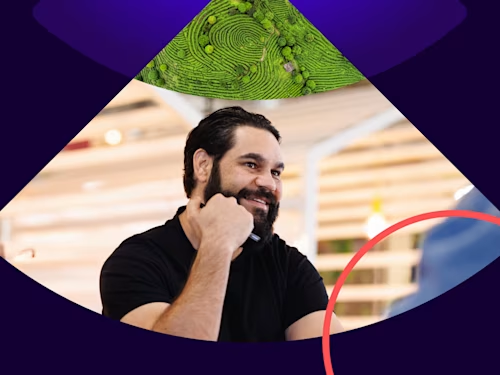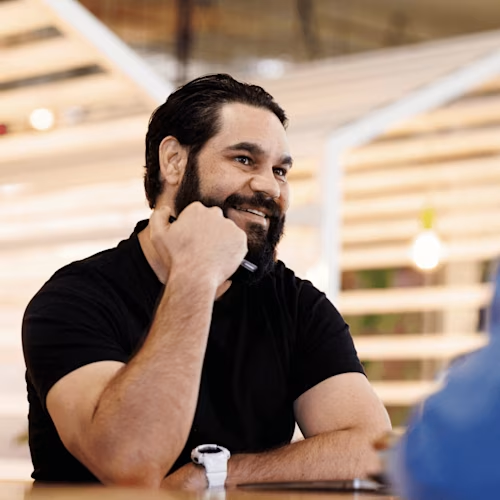
Going for gold: Ian Thorpe and Sir Chris Hoy on achieving business agility
Two of the world’s most successful athletes, Ian Thorpe and Sir Chris Hoy, share thoughts on how to navigate change and thrive through periods of uncertainty.

Many Australians will remember when 17-year-old Ian Thorpe stepped out onto the pool deck at the Sydney 2000 Olympics. Carrying the weight of a nation’s expectations on his broad shoulders, he dove off the blocks in his first race – the 400m Freestyle – and never looked back.
Ian went on to win three gold and two silver medals at the Games, proving not only his exceptional swimming abilities but also a remarkable capacity to thrive under pressure.
It was a similar story for former track cyclist Sir Chris Hoy, who represented Great Britain at numerous Olympic Games – including London 2012 when he was 36. Hoy was the flag bearer at his home games, and rode away with two gold medals that year to wrap up an incredibly successful cycling career.
Decades on, these two sporting superstars are showing no signs of slowing down. Successful in business and philanthropy, they both draw on the lessons they learned as elite athletes to stay one step ahead in our fast-paced business world.
To find out some of their secrets to success, we recently invited Ian and Chris to join us for a special event. The pair reflected on some of the highlights of their sporting careers and generously shared stories of how their experiences have helped shape who they are today. It’s a must-watch if you’re a fan of sports or you’re interested in what it takes to become a sports star.
Below, we share some of the highlights of the conversation they had with Andrea Dixon, Head of APJ Marketing, Docusign (their answers have been edited for brevity – watch the on-demand event for their full responses).
On navigating change in your career
Chris: “The biggest change in my career happened after Athens in 2005. I got a phone call to say the event I was defending had been dropped from the Olympic program. After raging against this decision for a while, I realised I had to accept it and move on. So I changed to two very technical and tactical events – the sprint and the keiran.
“Long story short, I went on to win three gold medals in Beijing. While change can seem scary, it can force you out of your comfort zone and you end up achieving things you’d never thought possible. With change, there is always opportunity.”
On maintaining focus during periods of change
Ian: “People talk about death and taxes as being inevitable in life. Change is the other constant you have to deal with. As soon as you accept that, you have a choice around how you manage and deal with it. When it comes to motivation and focus, I have never really struggled. I always set goals in the short, medium and long term – and, by the time I stand behind the blocks, I have no doubt I have done everything feasible to perform at a level that my competitors can’t.”
Chris: “My desire was to get to race day knowing there was nothing more that I could do within my powers to be the best I can be. Then you have no regrets.”
On continuous improvement and the power of tiny gains
Chris: “The British cycling team’s mantra was ‘the aggregation of tiny gains’. And, only by bringing these gains together, do you see overall significant improvement. It’s a fine line at the elite end of sport – margins between winning and losing are so small. So any possible area we could find to improve, we’d pursue it. For example, with recovery, we knew that sleep is critical. So we took our own beds with us on tour, so we’d get a good night’s sleep in our own beds. All these little things give you confidence knowing you’ve ticked every box to leave no stone unturned.”
On building a strong mindset
Ian: “This varies from individual to individual. We are all complex as human beings. It’s having a reflection on what your values are, and what drives you. My strong mindset came from having a belief in myself and an understanding of my talent.”
Chris: “I’ve got a lot to thank our team psychologist, Dr Steve Peters, for. He’s one of the most remarkable humans I’ve ever met, and he changed my life. The biggest thing he taught me was perspective. As he said, ‘It’s not life and death. You’re just riding bikes on a wooden track in an anticlockwise direction. Nobody’s going to die if you don’t win gold.’
“I learned how to be resilient in the face of stress. Once you have these skills and use them on a regular basis, you can apply them to any situation in life.”
Wise words, indeed, from both Chris and Ian. To watch the event in full, head here. You never know, you may just get a spark of inspiration to change something in your life or your business.
Docusign IAM is the agreement platform your business needs


